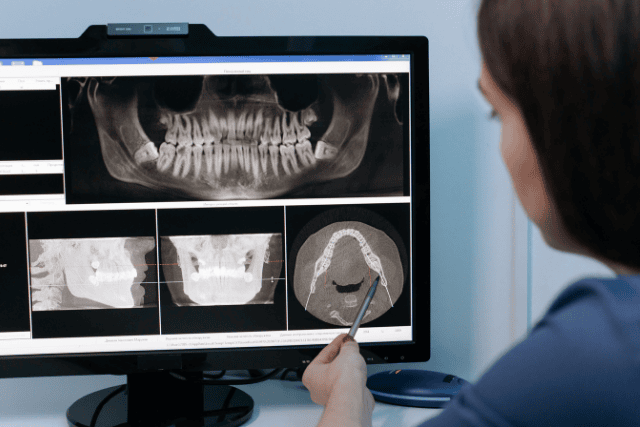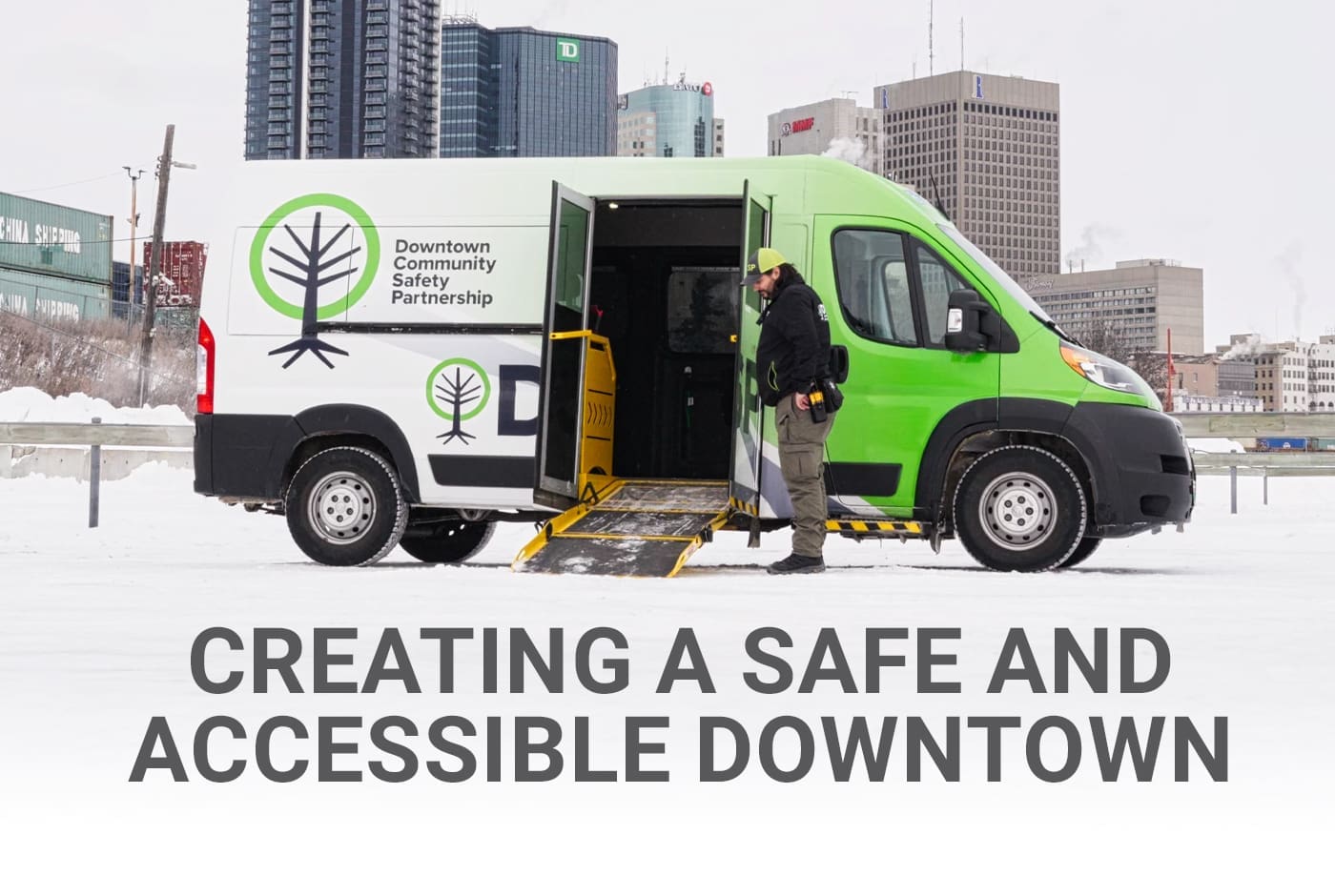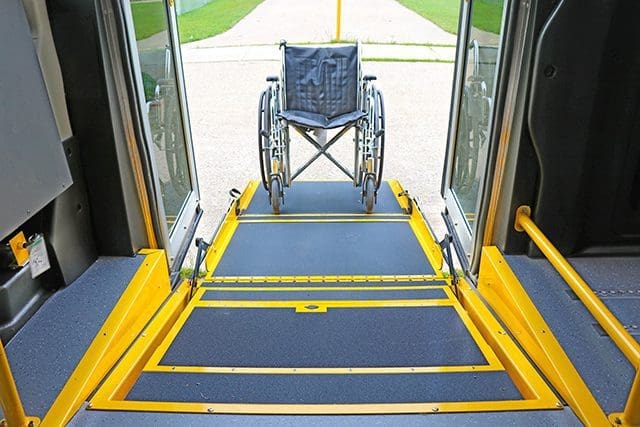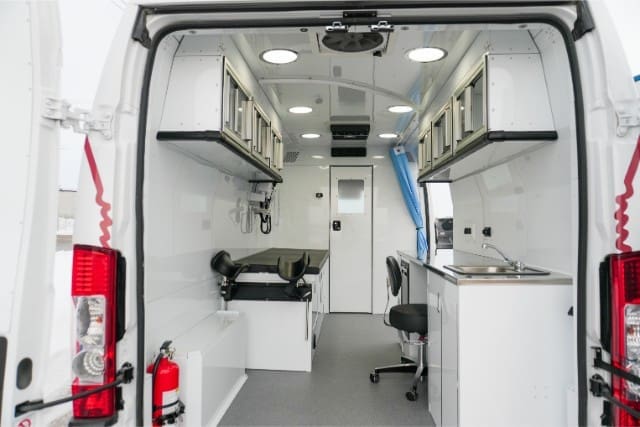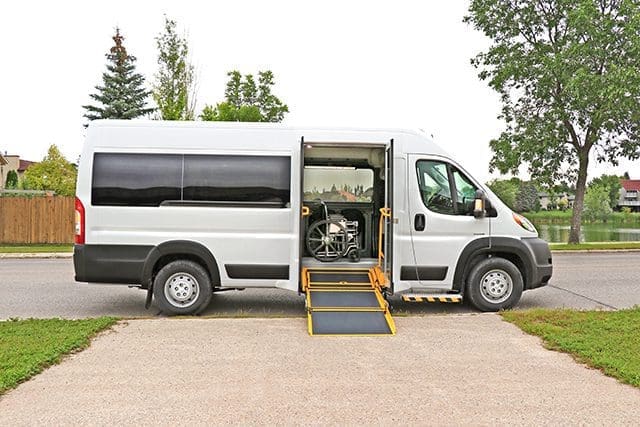Have you ever felt like your dental practice isn’t reaching the people who most need it? Maybe you’ve noticed patients struggling to make appointments because of long drives, mobility issues, or a lack of access in their area. If you’re a dental professional or organization, this can be frustrating. How do you provide care to people when a regular dental clinic just isn’t meeting their needs?
This is where mobile dental clinics come in. They’re designed to bring care directly to patients—whether that’s in rural communities, urban centers, or anywhere access to dental services is a challenge. But making the leap to a mobile dental unit can feel like a big step. Questions about cost, logistics, and whether it’s the right choice can hold you back.
At MoveMobility, we’ve helped hundreds of organizations across Canada break down these barriers with custom vehicles for healthcare and community services. We believe everyone should have access to essential care, no matter where they live.
In this article, we’ll explore how a mobile dental clinic compares to a regular dental clinic. You’ll learn how going mobile could transform your ability to serve patients—and how to decide if it’s the right fit for your practice.
When is a regular dental office the better choice?

Choosing between a mobile dental clinic and a regular dental clinic depends on your goals and the patients you want to serve. Let’s break it down into the pros and cons of staying in one location with a fixed clinic.
Pros of a regular dental office
Handles many patients daily: A fixed clinic can manage a busy schedule with more space, staff, and equipment. This makes it easier to handle a high volume of patients.
Example: A clinic in Vancouver’s city center can see dozens of people in one day, something a mobile unit may find difficult.
Great for advanced treatments: Some dental work, like surgeries or braces, needs specialized tools and larger spaces that a mobile unit doesn’t have.
Example: Patients needing dental implants or root canals may find better care in a permanent location.
Familiar and comfortable: Some patients prefer visiting the same place for their dental needs. Familiarity can help build trust and make people feel at ease.
Example: Families in Ottawa may choose a clinic they’ve been visiting for years because they know the team and feel at home.
Cons of a regular dental clinic
Hard to reach for some: Patients in rural or remote areas may face long travel times to get to a fixed clinic.
Example: Someone in northern Alberta might struggle to visit a clinic regularly due to the distance.
Limited access for those with mobility challenges: People who are homebound or in long-term care may not be able to visit a clinic at all.
Example: Seniors in care homes or those with disabilities could miss out on dental care entirely.
Less flexibility: Fixed clinics can’t easily adapt to changing demand. They’re tied to one location, so they can’t directly serve underserved communities.
Higher overhead costs: Running a fixed clinic comes with expenses like rent, utilities, and maintenance, which can add up quickly.
Missed opportunities for outreach: Regular clinics rely on patients coming to them, which can leave out populations who need dental care but can’t easily access it.
While fixed clinics are great for busy practices and specialized treatments, they don’t always meet the needs of patients in harder-to-reach areas. Weighing these pros and cons can help you choose the right setup for your practice and community.
When is a mobile dental unit the better choice?
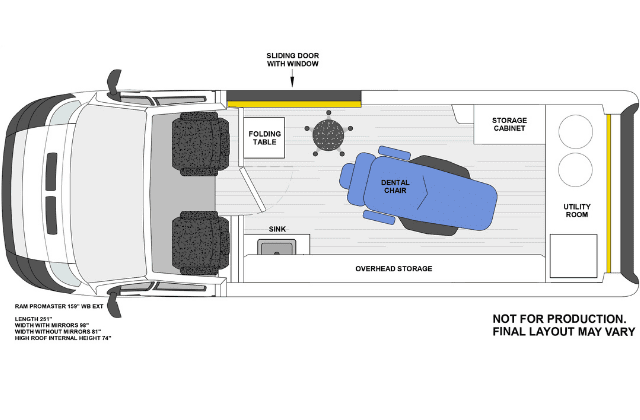
Sometimes, patients can’t get to a regular dental office. That’s where a mobile dental clinic can make a huge difference. Let’s look at the good and the not-so-good about going mobile.
Pros of a mobile dental clinic
Great for rural and remote areas: Mobile clinics are perfect for small towns or isolated, rural places where there isn’t a regular dental office nearby. Instead of patients driving long hours, the clinic comes to their community.
Example: A small farming community in Alberta could get regular checkups and cleanings when a mobile dental clinic visits once a month.
Another example is the mobile dental clinic run by McGill University that provides basic dental care to over 300 patients per year.
Mobile dentist for seniors with: It’s hard for some patients to leave home, like seniors in nursing homes or people with disabilities. A mobile dentist for seniors brings care to them where they’re most comfortable.
Example: Residents in a retirement home in Manitoba can get their teeth cleaned and checked without needing to leave the building.
Great for schools and kids: Mobile dental units can visit schools and help kids who might not get dental care otherwise. This is super helpful in low-income areas.
Example: A mobile dental van parked at a school in Toronto can give kids cleanings and fluoride treatments right on-site.
Flexible for emergencies and events: Mobile dental clinics can show up where they’re needed, like during natural disasters, public health events, or community fairs.
Example: After flooding in British Columbia, a mobile dental clinic can be set up at a shelter to help families who need care.
Cons of a mobile dental clinic
Not for advanced treatments: Mobile dental units may not be the best option if you’re looking at handling big procedures like surgeries or braces because they may lack the space or equipment. It’s always best to talk to a mobility expert if you’re unsure about what route to take with this. Click the button to the right of this article to learn more.
Weather and travel challenges: Certain parts of Canada are sometimes prone to bad weather or road issues. This might make it hard for the clinic to get where it needs to go. Luckily, there’s a solution that makes driving on winter roads much safer.
Mobile dental clinics excel at bringing care to people who can’t get to a regular office. As you’ll see below, think about what your patients need most before deciding if going mobile is the right move for your practice.
Should you choose a standard dental clinic or a mobile dental vehicle?
| Consider a mobile dental clinic if: | Consider a regular dental clinic if: |
| You want to bring care to rural or underserved areas with limited access. | You’re in an area with steady demand and a large, stable patient base. |
| Serving patients with mobility challenges (seniors, people with disabilities) is a priority. | Your services include advanced treatments that need specialized equipment. |
| Flexibility to move locations and serve groups like schools or nursing homes is important. | You want to build strong relationships with patients who prefer consistent visits. |
| You’re focused on public health events or initiatives like free screenings. | Your community has good transportation options, making travel easy for patients. |
Tip: The best choice depends on your goals and how you want to serve your community.
Do you have any questions about mobile dental units?
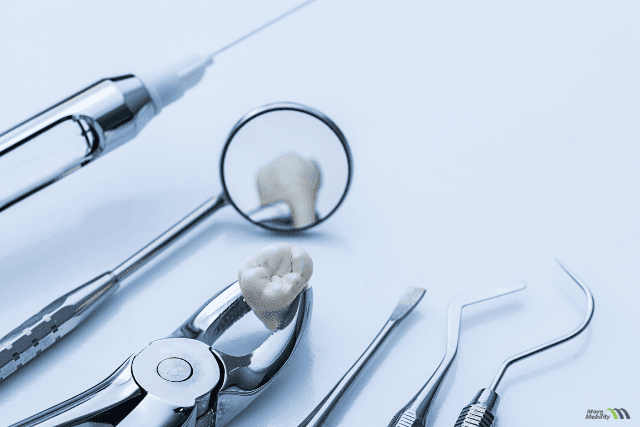
You’re reading this article to explore the best options for delivering dental care, whether mobile or traditional. By now, you’ve learned how mobile dental clinics can transform patient access and meet the needs of underserved communities, whether it’s providing seniors with at-home care or helping children in rural schools.
At MoveMobility, we’ve spent over two decades helping organizations across Canada break down barriers to healthcare. We create custom vehicles for organizations to deliver care to those in need all across Canada. Our passion is making healthcare accessible for everyone, and we’re here to support you every step of the way. If you have questions about next steps, we’re here to help you find the best solution for your practice.
If you’re ready to learn more about mobile dental clinics, click the button below to connect with a mobility expert. We’re here to answer any questions you have and make your vision a reality.
If you’re not ready to talk just yet, don’t worry—we’ve got plenty of resources to help you learn more.
If you’re running into funding issues, start by reading our article on how to fundraise for a mobile dental unit.
After that, you might also be curious about the warranty on our mobile dental clinics. This article should give you a better idea of what our warranty packages are like at MoveMobility.


